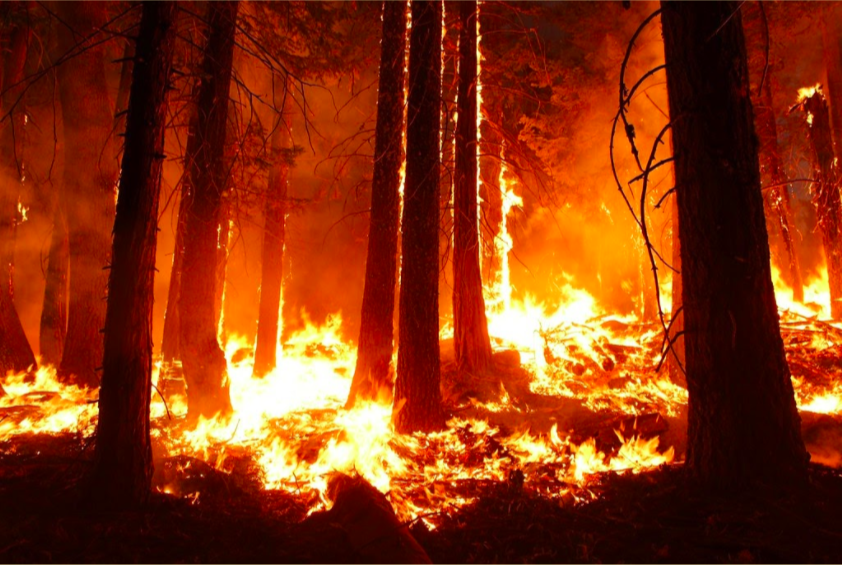Is This The New Normal?
Extreme forest fires across the country have been made worse by global warming.
Is this the new normal?
There have been an unusually large amount of forest fires this summer. With the fires ravaging thousands of acres in the west, and poor air quality preventing outdoor activities, many are eagerly awaiting the end of 2020’s fire season. But will the following years be any different?
Those of us residing in Boulder and the surrounding areas have certainly noticed the poor air quality and high levels of smoke during the height of the fires. The Pine Gulch Fire (now the largest wildfire in Colorado’s history) has burned 139,007 acres, and the Cameron Peak fire (the second-largest in our state this year) has destroyed 102,596 acres.
Many jokes have been made about the fire caused by a gender reveal party in California. However, this topic is serious. Since January of this year, forest fires have destroyed 2,246,483 acres of land in California, which is an 893,504 acre increase from this time last year. The fires in Oregon this year have also been devastating, and the air quality has been extremely poor. The AQI (Air Quality Index) in Portland stayed at very unhealthy and hazardous levels from Sept. 10-16, before finally rising towards unhealthy levels on the 17th and remaining at moderate and good levels since then. Though the long term health effects of this poor air quality are unknown, spending the day outside in Portland on Sept. 13 would have been equivalent to smoking twenty cigarettes in one day.
This increase in fires and poor air quality is easy to write off as coincidence, especially now that the weather is cooling down and the fires are mostly under control. Now that many of the fires have been put out, people have begun to try and forget them, but could this be the new normal?
Global climate change is causing temperatures to increase. The average rate has been 0.13 ℉ per decade since 1880, but following 1981 that rate more than doubled to 0.32℉. Forest fires have been getting worse with these increasing temperatures and the number of acres burned has continued to increase on average since the 1980s. Every summer it gets hotter, and though people are quickly adapting to these fires and their short term effects, if they continue to worsen, the long term health effects could be dire. Many of these fires have become so large that fire departments are forced to simply wait for rain or snow to put them out.
These forest fires could become more widespread every fire season, and if these trends continue, we may be approaching the time to buy air filters and move to places with colder climates.

Selah is a BHS senior who enjoys writing and wants to continue improving her skills by joining the OWL. She hopes to bring to light to important issues in and beyond the Boulder High community and share some of her many opinions. When she’s not doing work for her classes, Selah enjoys nature. She grows many plants, including purple grapes in her backyard, which she far prefers to the green ones. She spends a lot of time hiking, camping, and enjoying the Colorado mountains. Selah likes to read. She often reads fiction; however, philosophy and nonfiction are also her favorites. She is also a singer and piano player and has written several songs of her own and many in collaboration with her brother....


